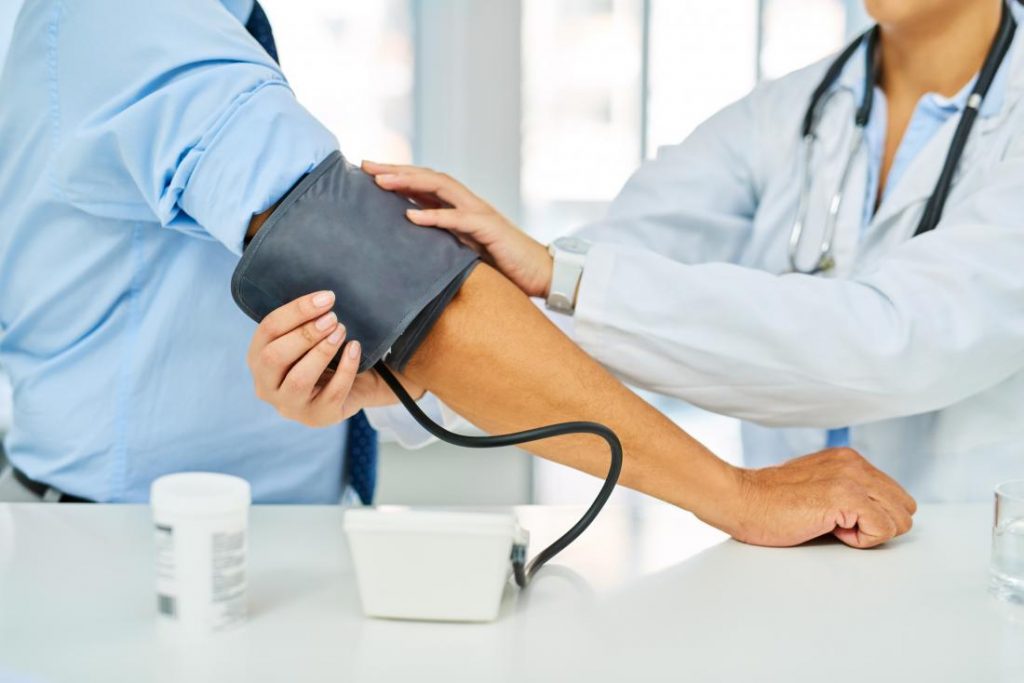
Are you above the age of 30? If yes you need to start checking your blood pressure and maintain your values at the required limits 220/80. High blood pressure is a dangerous condition that can damage your heart.But there’s good news. There are a number of things you can do to lower your blood pressure naturally, even without medication.
Below are natural ways you can lower or keep your blood pressure under check.
1. Walk and exercise regularly
Exercise is one of the best things you can do to lower high blood pressure.
Regular exercise helps make your heart stronger and more efficient at pumping blood, which lowers the pressure in your arteries.
In fact, 150 minutes of moderate exercise, such as walking, or 75 minutes of vigorous exercise, such as running, per week can help lower blood pressure and improve your heart health .
What’s more, doing even more exercise reduces your blood pressure even further, according to the National Walkers’ Health Study.
Bottom Line: Walking just 30 minutes a day can help lower your blood pressure. More exercise helps reduce it even further.
2. Reduce your sodium intake
Salt intake is high around the world. In large part, this is due to processed and prepared foods.
For this reason, many public health efforts are aimed at lowering salt in the food industry .
In many studies, salt has been linked to high blood pressure and heart events, like stroke .
However, more recent research indicates that the relationship between sodium and high blood pressure is less clear .
One reason for this may be genetic differences in how people process sodium. About half of people with high blood pressure and a quarter of people with normal levels seem to have a sensitivity to salt.
If you already have high blood pressure, it’s worth cutting back your sodium intake to see if it makes a difference. Swap out processed foods with fresh ones and try seasoning with herbs and spices, rather than salt.
Bottom Line: Most guidelines for lowering blood pressure recommend lowering sodium intake. However, that recommendation might make the most sense for people who are salt-sensitive.
3. Drink less alcohol
Drinking alcohol can raise blood pressure. In fact, alcohol is linked to 16% of high blood pressure cases around the world .
While some research has suggested that low-to-moderate amounts of alcohol may protect the heart, those benefits may be offset by negative effects.
In the US, moderate alcohol consumption is defined as no more than one drink a day for women and two for men. If you drink more than that, cut back.
Bottom Line: Drinking alcohol in any quantity may raise your blood pressure. Limit your drinking to no more than one drink a day for women, two for men.
4. Eat more potassium-rich foods
Potassium is an important mineral.
It helps your body get rid of sodium and ease pressure on your blood vessels.
Modern diets have increased most people’s sodium intake while decreasing potassium intake .
To get a better balance of potassium to sodium in your diet, focus on eating fewer processed foods and more fresh, whole foods.
Foods that are particularly high in potassium include:
- Vegetables, especially leafy greens, tomatoes, potatoes and sweet potatoes
- Fruit, including melons, bananas, avocados, oranges and apricots
- Dairy, such as milk and yogurt
- Tuna and salmon
- Nuts and seeds
- Beans
Bottom Line: Eating fresh fruits and vegetables, which are rich in potassium, can help lower blood pressure.
5. Cut back on caffeine
If you’ve ever downed a cup of coffee before you’ve had your blood pressure taken, you’ll know that caffeine causes an instant boost.
However, there’s not a lot of evidence to suggest that drinking caffeine regularly can cause a lasting increase.
In fact, people who drink caffeinated coffee and tea tend to have a lower risk of heart disease, including high blood pressure, than those who don’t .
Caffeine may have a stronger effect on people who don’t consume it regularly.
If you suspect you’re caffeine-sensitive, cut back to see if it lowers your blood pressure .
Bottom Line: Caffeine can cause a short-term spike in blood pressure, although for many people it does not cause a lasting increase.
6. Learn to manage stress
Stress is a key driver of high blood pressure.
When you’re chronically stressed, your body is in a constant fight-or-flight mode. On a physical level, that means a faster heart rate and constricted blood vessels.
When you experience stress, you might also be more likely to engage in other behaviors, such as drinking alcohol or eating unhealthy food, that can negatively affect blood pressure.
Several studies have explored how reducing stress can help lower blood pressure. Here are two evidence-based tips to try:
- Listen to soothing music: Calming music can help relax your nervous system. Research has shown it’s an effective complement to other blood pressure therapies .
- Work less: Working a lot, and stressful work situations in general, are linked to high blood pressure .
Bottom Line: Chronic stress can contribute to high blood pressure. Finding ways to manage stress can help.
7. Eat dark chocolate or cocoa
Here’s a piece of advice you can really get behind.
While eating massive amounts of chocolate probably won’t help your heart, small amounts may.
That’s because dark chocolate and cocoa powder are rich in flavonoids, plant compounds that cause blood vessels to dilate .
A review of studies found that flavonoid-rich cocoa improved several markers of heart health over the short term, including lowering blood pressure.
For the strongest effects, use non-alkalized cocoa powder, which is especially high in flavonoids and has no added sugars.
Bottom Line: Dark chocolate and cocoa powder contain plant compounds that help relax blood vessels, lowering blood pressure.
8. Lose weight
If you’re overweight, losing weight can make a big difference for your heart health.
According to a 2016 study, losing 5% of your body mass could significantly lower high blood pressure .
In previous studies, losing 17 pounds (7.7 kg) was linked to lowering systolic blood pressure by 8.5 mm Hg and diastolic blood pressure by 6.5 mm Hg .
To put that in perspective, a healthy reading should be less than 120/80 mm Hg.
The effect is even greater when weight loss is paired with exercise .
Losing weight can help your blood vessels do a better job of expanding and contracting, making it easier for the left ventricle of the heart to pump blood.
Bottom Line: Losing weight can significantly lower high blood pressure. This effect is even greater when you exercise.

 WhatsApp us
WhatsApp us 